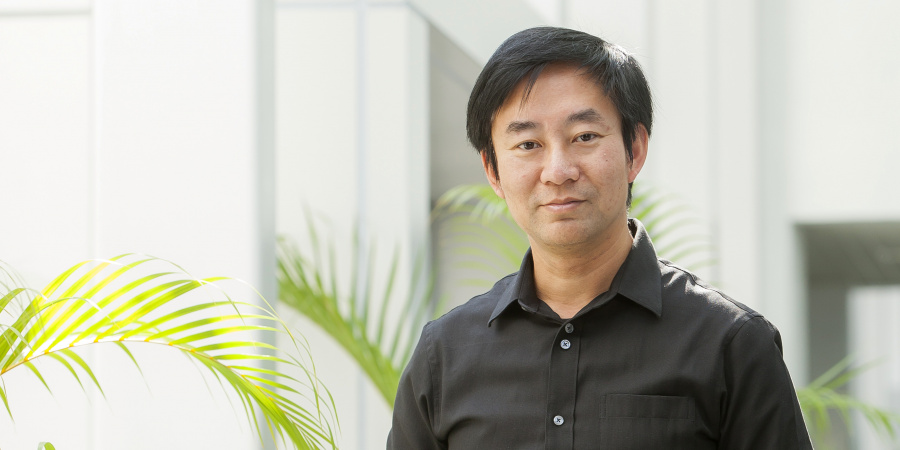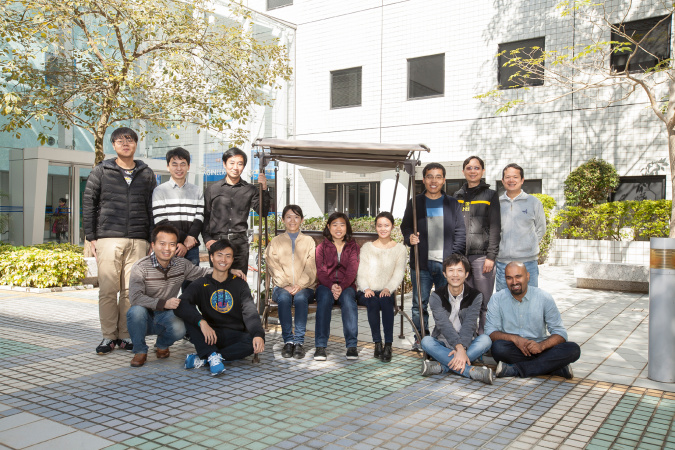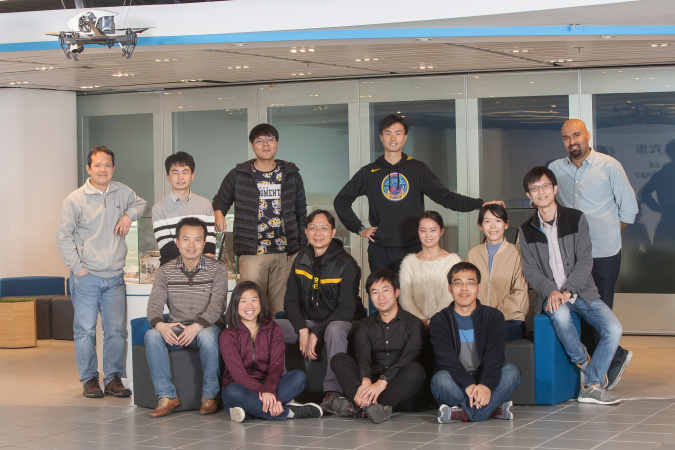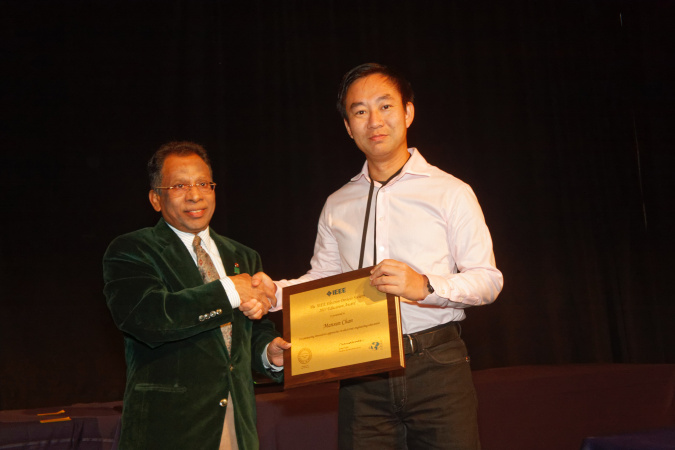A Serious Game Player
Prof Mansun Chan from HKUST’s Department of Electronic and Computer Engineering is a lover of board games. He first extended his sense of playing board games to his engineering studies. Now he is materializing his passion in engineering education and his dream of founding the International Olympics of Technology inspired by sportsmen’s Olympic Games.
“I started working as a freelancer in computing solutions when I was in secondary form four, sourcing accessories in Sham Shui Po after school and reading foreign computer magazines to teach myself. By the age of 16, I was the team leader responsible for client liaison and strategizing computer solutions for small and medium enterprises; it was the 80s when Hong Kong was going through rapid automation,” said Prof Chan. “During matriculation, I helped a client host an exhibition for Chinese computing.”
The experience proved to be more than beneficial. This is not only because one of his clients ended up sponsoring his three-year overseas studies at the University of California San Diego and part of his daily expenses, but because industry experience is essential for engineers. After achieving BS in Electrical Engineering with highest honors in barely two years and a quarter, he spent another six months to complete BS in Computer Science before entering graduate school, also with highest honors.
“My work experience since high school helped me go through what would have been the last undergraduate years more quickly. As a lover of all kinds of board games, I am also familiar with the discrete mathematics and probability behind throwing dice,” said the Professor while pointing to the shelves of board games in his office.
Completing MS and PhD at the University of California at Berkeley and hoping to make a difference in Asia where there was little focus on research then, Prof Chan soon found himself joining HKUST in 1996. “I like HKUST as a new and open-minded institution. I can enjoy the freedom of working on the research I like,” said Prof Chan.
“The research he likes” means many things. “To me, research is not limited to hard work in the lab. Learning about foreign cultures and planning a journey before travelling involves research. Research is a mentality.”
As such, he integrates a multitude of disciplines, theories and research findings to handle his work. “To set up a research team for instance, I use economic theories to ensure a good mix of members: some are smart, some are hardworking; others are presentable. I also make sure gender and cultural diversities are well represented.” As a result, Prof Chan has a team that functions well.
To him, academic publishing activities can also be explained by economic theories. “Some need to have papers published to become known and acquire research funding; publishers make money by helping others publish journals. The academia read them.” He likens writing research papers to telling stories in ways that the academic audience appreciates.
Rather than focusing on research output, he finds it more important to broaden the minds of researchers. “When research students join my team, I ask them: ‘Do you want to work on my research or yours? If mine, you are just working as my employee. If yours, tell me what you want to do and teach me.’ It is only with the second approach that the team grows and the students experience personal development and inspiration. If they simply follow my ideas as in the first approach, they could only have a fraction of my achievement.”
Prof Chan believes that education means instilling in students the desire to learn. When one wants to learn, one will be able to do so in whatever circumstances.
“Many of my students end up going into other disciplines such as software (game) design or legal studies in intellectual property. To me, this means success of the professor: I have been able to help students find themselves and what they really want to do in life. In the US, people on average change careers 1.8 times in life; such crossovers are less common in Asia. I believe everyone has strengths: some are executives, others are motivators or peacemakers; all make contributions. Finding your intrinsic value makes you irreplaceable in the market. Whereas today’s knowledge will become obsolete in five years, your understanding and definition of yourself endures.”
His attitude is reflected in his courses. “The education system requires engineering students to master advanced calculations before they know the basic phenomena. I want engineers to have the fundamental but crucial sense of being an engineer. As to the precise calculations, they can leave those to computers or AI.”
His exam papers are thus like IQ tests, full of questions which students have never seen. Whereas students are allowed to open their books and surf the Internet, they have to think hard and apply the knowledge they have learned. But when the answers were told, they all got surprised how simple the solutions are.
As a two-time winner of the School of Engineering’s Teaching Excellence Appreciation Award, he has been known for making classes interesting, applicable and relevant to the industry. He has also taught students with little background in solid state physics and made the subject comprehensible to them. “The clue is to use analogies and tell stories, applying knowledge into the world with which they are familiar.”
It is not surprising that Prof Chan is passionate in inspiring secondary and primary students with STEM. “Instead of having convergent tests with sets of model answers which create similarly ‘molded’ students, I advocate divergent tests which help each student find his or her own uniqueness and platform, creating his or her own value.”
Heavily involved in organizing IEEE Electron Devices Society (EDS)’s Electronic Camp and other circuit-related contests for children and adolescents in Hong Kong, China and the US, Prof Chan has recently received the 2017 IEEE EDS Education Award for pioneering innovative approaches in electronic engineering education and becomes the youngest recipient at the time the award is given. Previous awardees include highly recognized scholars such as Prof Chenming Hu from UC Berkeley, Prof Roger Howe and Prof Robert Dutton from Stanford, and Prof Jesus Del Alamo from MIT, etc.
“We use the ‘reverse engineering’ approach: rather than starting from traditional mathematics, proceeding to physics and finally to engineering, we ask kids to connect a circuit as if they are playing with Lego bricks. When the lamp ignites, they are thrilled to see the circuit being successfully connected. With such fun and proactive learning, they become motivated to learn about physics. And when they go further to make things more precise, they learn mathematics. Some proceed to chemistry to learn about properties, so on and so forth.”
The engineer is quite a philosopher: he thinks people should not become slaves to technology, and finds no conflict between science and religion. “I have a faith, and until it is verified to be wrong I will continue to believe in it. Same for science and engineering: we have to be faithful to our thoughts.”
Having joined HKUST for more than two decades, Prof Chan thinks he has now reached the third stage of “scholarship”: after “discovery” and “integration”, he is now at the height of “education”. His education goal extends beyond Hong Kong to children in rural China. Volunteering for a few NGOs, he motivates and shares with rural kids about learning in a fun environment.
As to the future, he aspires to contribute to young people’s personal growth through science and technology. More specifically, he is exploring the feasibility of organizing what he calls IoT – not the hottest Internet of Things, but the International Olympics of Technology combining fields such as robotics, 3D printing, circuits and electronics in a game setting. “I hope to make science and engineering as visible as sports games.”
His words to young or aspiring engineers: find your own uniqueness, feed your passion, look towards the long term, and do what you believe in.
These words are certainly convincing, coming from a professor who used to spend after-school hours in Sham Shui Po computer vendors as a teenage freelancer in computing solutions, and has now achieved over 14 patents in the US and over 500 published journals and conference papers in electronic and computer engineering.
Related link:




